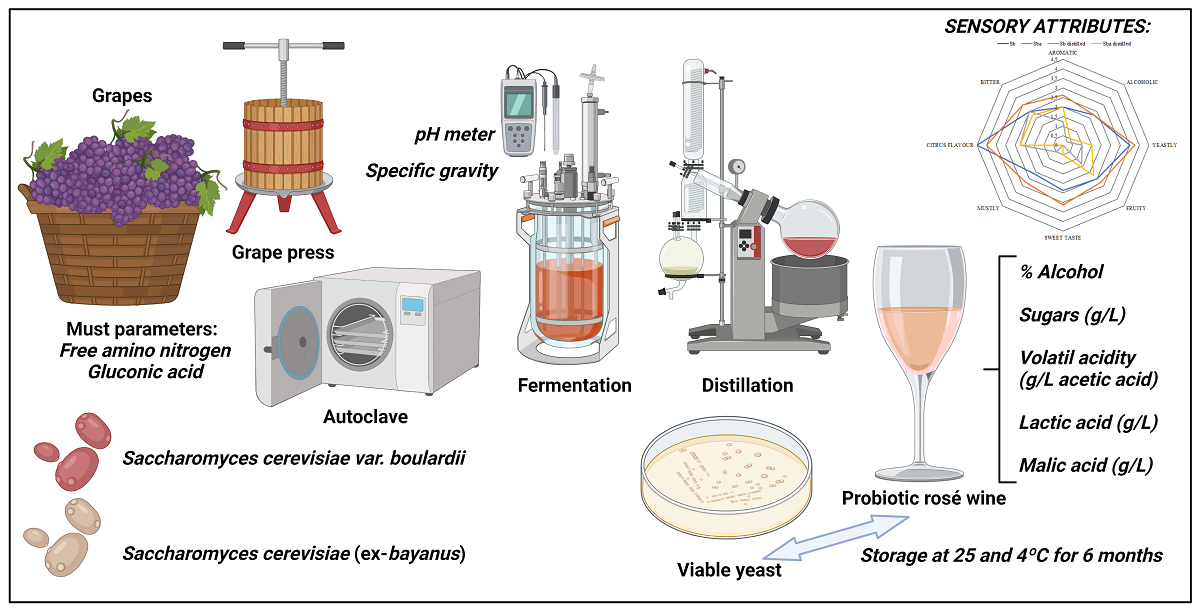This paper reports for the first time on the production of probiotic alcoholic and non-alcoholic rosé wines with enhanced health benefits made with Saccharomyces cerevisiae var. boulardii probiotic yeast. The alcohol, sugar, volatile acidity lactic and malic acid contents were assessed for S. cerevisiae var. boulardii before and after fermentation and distillation and compared with a conventional Saccharomyces cerevisiae (ex-bayanus) yeast. The free amino nitrogen and gluconic acid concentrations in the musts were determined. Yeast viability was evaluated after fermentation and distillation as a function of time (0, 15 days, 3 months and 6 months) both at room temperature (25±0.5ºC) and refrigerator temperature (4±0.5ºC). The results obtained showed that the probiotic rosé wine produced with S. cerevisiae var. boulardii possesses the typical values and sensory attributes of other commercial wines produced with S. cerevisiae (ex-bayanus). The probiotic S. cerevisiae var. boulardii yeast survives the high alcohol content produced during fermentation and vacuum distillation. The study also showed that this probiotic rosé wine stored either at room temperature or in a refrigerator keeps its probiotic viability for at least six months, which makes it a promising for large-scale production, in which long storage times are required by both producers and consumers.

